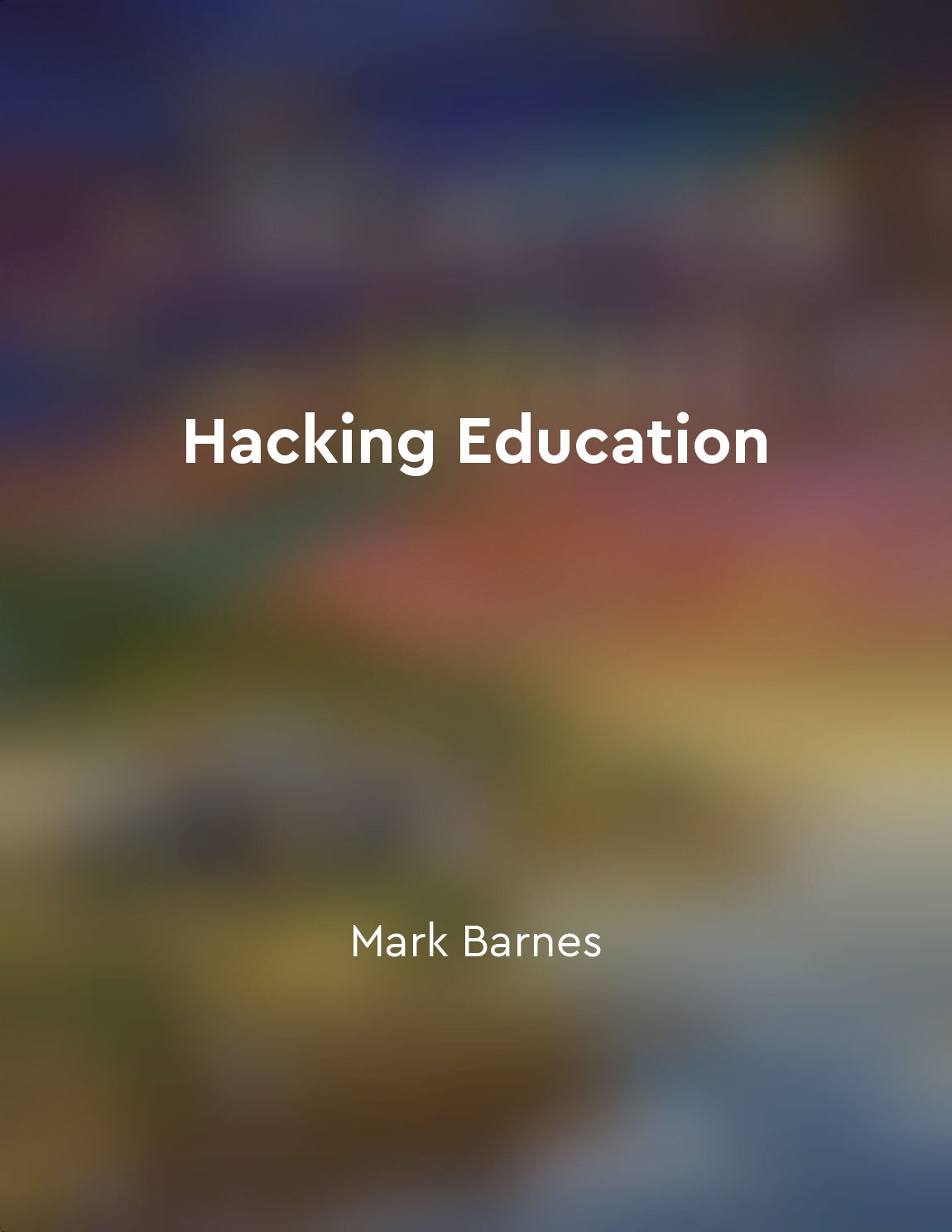Audio available in app
Promote selfdirected learning from "summary" of Hacking Education by Mark Barnes,Jennifer Gonzalez
To promote self-directed learning, educators must relinquish control and empower students to take ownership of their learning journey. This involves shifting the traditional teacher-centered approach to a student-centered one, where students are encouraged to explore their interests, set goals, and make decisions about their learning path. This allows students to develop critical thinking skills, creativity, and independence, preparing them for real-world challenges. One way to foster self-directed learning is by providing students with opportunities to pursue topics that pique their curiosity. By allowing students to choose projects or research topics that align with their interests, educators can tap into their intrinsic motivation and drive for learning. This approach not only increases student engagement but also encourages them to take responsibility for their learning outcomes. Another key aspect of promoting self-directed learning is to create a supportive environment where students feel comfortable taking risks and making mistakes. By fostering a growth mindset and emphasizing the value of learning from failures, educators can help students develop resilience and perseverance. This approach encourages students to embrace challenges, seek feedback, and continuously improve their skills. Furthermore, educators can incorporate self-assessment and reflection practices into the learning process to encourage students to monitor their progress and set goals for improvement. By providing opportunities for students to reflect on their strengths and weaknesses, educators can help them develop a growth mindset and a sense of self-efficacy. This reflective practice can help students become more self-aware and proactive in their learning journey.- Promoting self-directed learning requires a shift in mindset from teacher-centered to student-centered, empowering students to take ownership of their learning. By providing opportunities for students to pursue their interests, fostering a supportive environment for risk-taking, and incorporating self-assessment and reflection practices, educators can nurture students' independence, critical thinking skills, and creativity. Embracing self-directed learning not only prepares students for success in the real world but also cultivates a lifelong love for learning.


